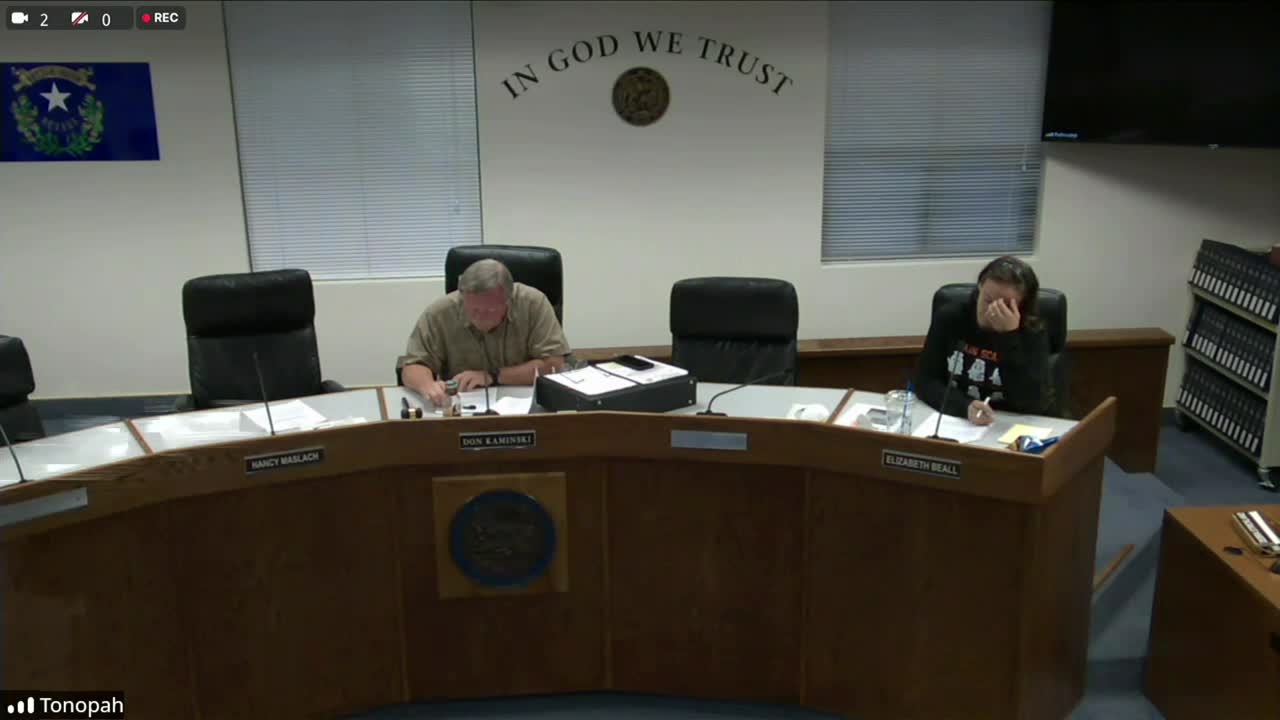Northern Nye Hospital District approves 30-day extension of Frontier Medical Group contract as board weighs funding options
Get AI-powered insights, summaries, and transcripts
Subscribe
Summary
After lengthy discussion about clinic capacity, patient transport and the district's limited funds, trustees unanimously approved a 30-day extension of Frontier Medical Group's contract to allow time for an orderly transition and further talks with EMS and community providers.
Chair Elizabeth called the board to consider whether to continue a contract for medical services with Frontier Medical Group or to terminate it. After extended discussion about patient volumes, payer mix and ambulance transport rules, trustees voted to modify the contract to a 30-day extension and authorized the chair and clerk to execute the agreement.
The board and providers debated clinic operations and sustainability. Dr. Coker, who represents Frontier Medical Group in Tonopah, told the trustees the clinic cannot be financially self-sustaining under current conditions: "It will not," he said when asked whether the clinic could sustain itself without district subsidies. He and other providers described limited patient revenue ("the average is about $36 to $50 a patient") and a payer mix skewed toward Medicaid, which they said accounted for the majority of visits.
Trustees and public speakers raised concerns about inconsistent clinic hours and cash-only billing at certain local providers. Resident Gwen Placencia told the board, "Having a medical provider out here that does not accept insurance means 90% of the people will not be here." Several commenters urged the board to seek a provider that accepts insurance and to clarify where district tax dollars have been spent.
The discussion also addressed emergency transport. Chief Scott Lewis told the board that ambulance crews must evaluate patient acuity and the receiving facility's available level of care before transporting: "If you don't have that, we can't take the patient there. That's almost a patient abandonment if we leave a patient in an environment that they can't provide that level." Chief Lewis said that the decision is driven by level-of-care requirements, not a simple county authorization, and offered to work with the clinic staff to review equipment and capabilities.
Board members repeatedly emphasized that the district is running short of funds. One trustee summarized the budgetary dilemma: district payouts for REMSA and Frontier combined were described in discussion as roughly "900 and some thousand dollars" while revenue drawn to cover operations was described as about $500,000 (figures presented by speakers during debate). Trustees said the board cannot commit to a long-term subsidy without a viable plan.
To buy time for further planning and transition, Chair Elizabeth moved to replace the one-year term in the proposed contract with a 30-day extension so Frontier could notify patients and the district could pursue alternatives. Nancy seconded the motion. The board voted to approve the 30-day extension, tallying the motion as passing 3-0. The chair said she would sign the contract that evening.
Dr. Coker said he would notify patients as required by his medical board and would post notice to the community if the clinic closure proceeds after the 30 days. Trustees and public commenters asked the board to convene additional discussions among stakeholders (district staff, REMSA/ambulance services, providers and county officials) during the extension to explore options including recruiting providers who accept insurance, examining available grants, and clarifying ambulance transport policy.
